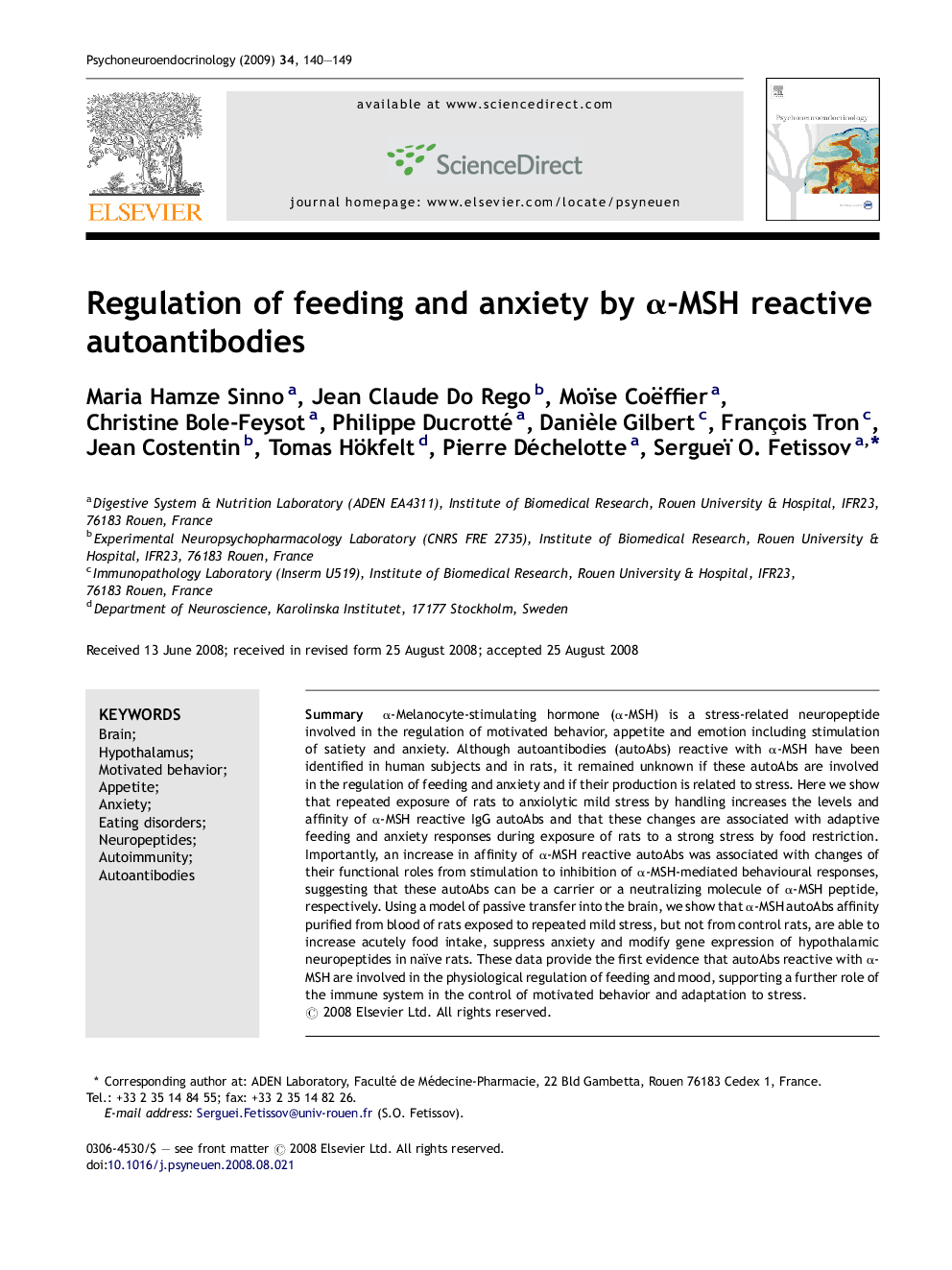| Article ID | Journal | Published Year | Pages | File Type |
|---|---|---|---|---|
| 336577 | Psychoneuroendocrinology | 2009 | 10 Pages |
Summaryα-Melanocyte-stimulating hormone (α-MSH) is a stress-related neuropeptide involved in the regulation of motivated behavior, appetite and emotion including stimulation of satiety and anxiety. Although autoantibodies (autoAbs) reactive with α-MSH have been identified in human subjects and in rats, it remained unknown if these autoAbs are involved in the regulation of feeding and anxiety and if their production is related to stress. Here we show that repeated exposure of rats to anxiolytic mild stress by handling increases the levels and affinity of α-MSH reactive IgG autoAbs and that these changes are associated with adaptive feeding and anxiety responses during exposure of rats to a strong stress by food restriction. Importantly, an increase in affinity of α-MSH reactive autoAbs was associated with changes of their functional roles from stimulation to inhibition of α-MSH-mediated behavioural responses, suggesting that these autoAbs can be a carrier or a neutralizing molecule of α-MSH peptide, respectively. Using a model of passive transfer into the brain, we show that α-MSH autoAbs affinity purified from blood of rats exposed to repeated mild stress, but not from control rats, are able to increase acutely food intake, suppress anxiety and modify gene expression of hypothalamic neuropeptides in naïve rats. These data provide the first evidence that autoAbs reactive with α-MSH are involved in the physiological regulation of feeding and mood, supporting a further role of the immune system in the control of motivated behavior and adaptation to stress.
